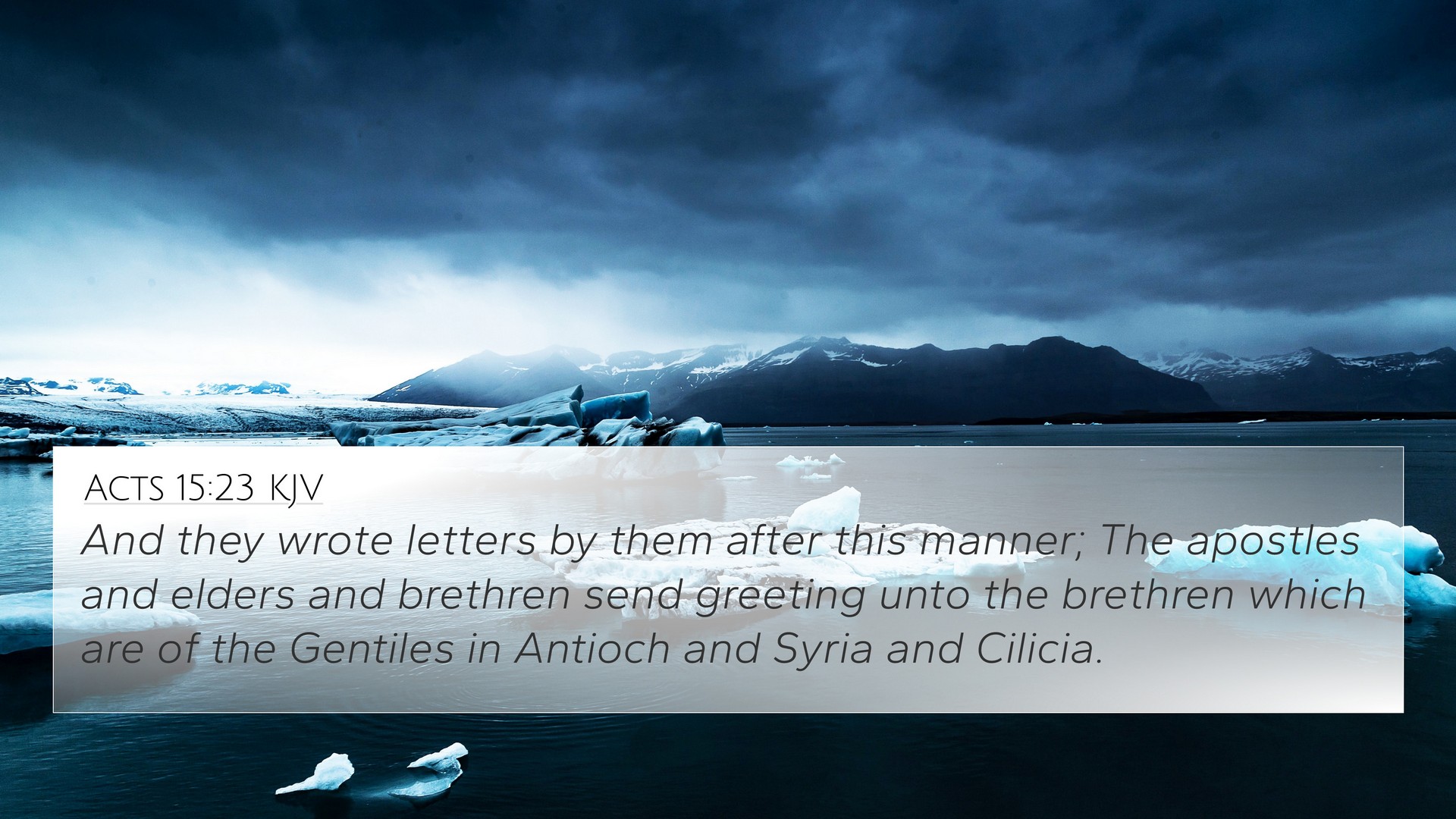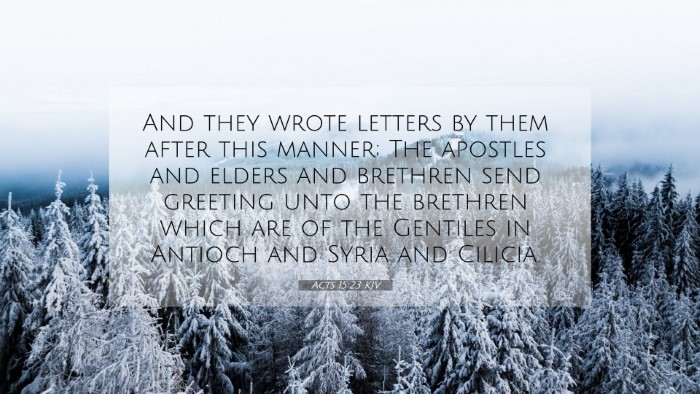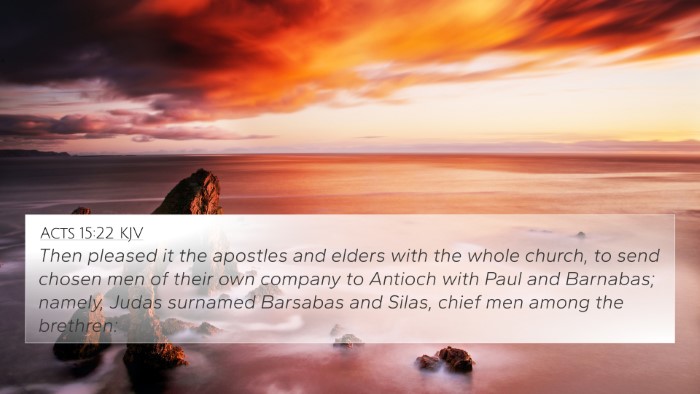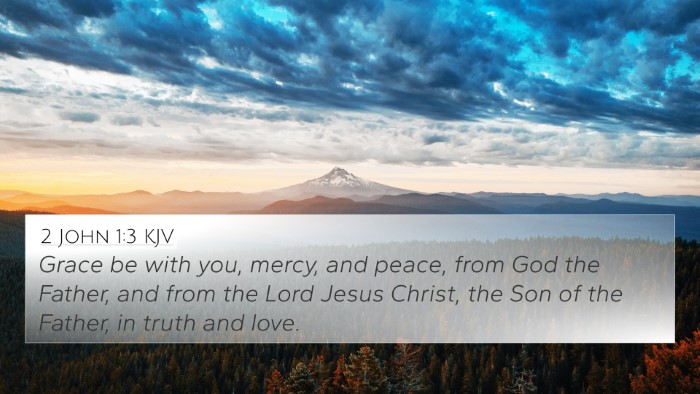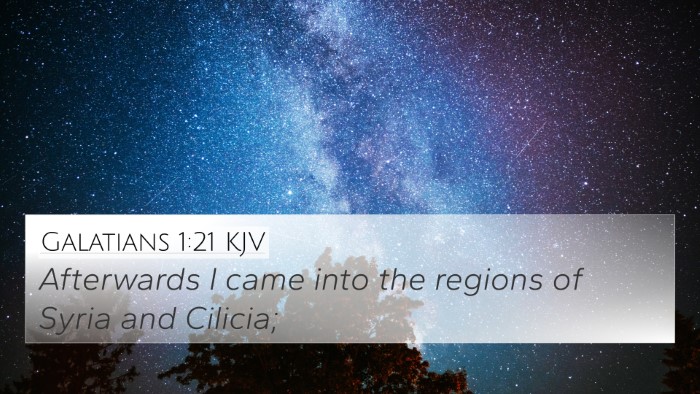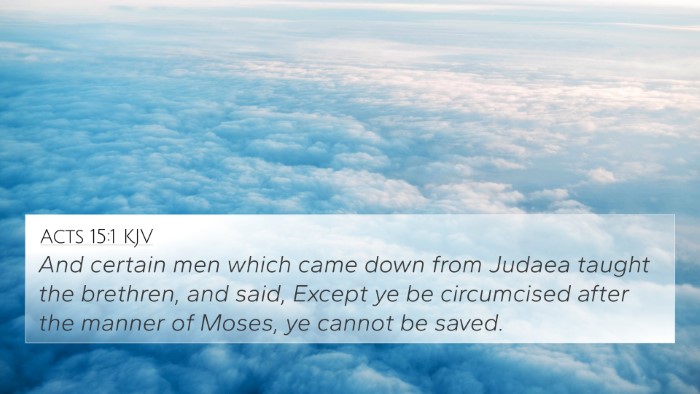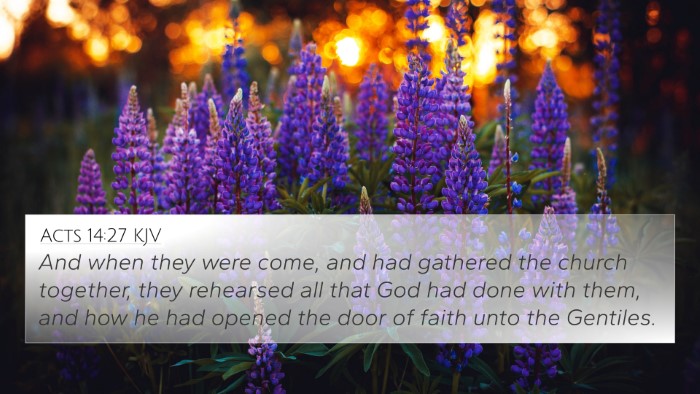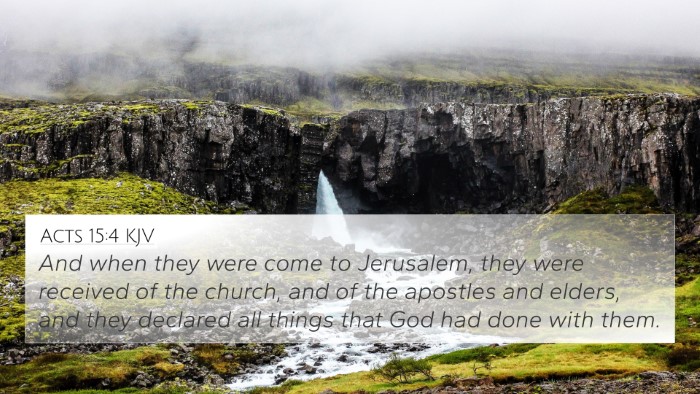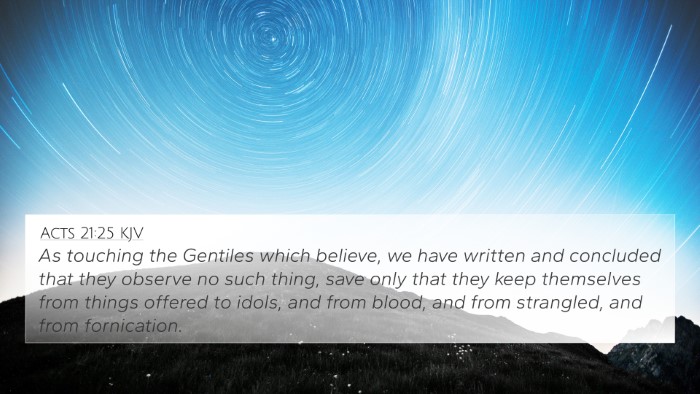Understanding Acts 15:23
Acts 15:23 states:
"And they wrote letters by them after this manner; The apostles and elders and brethren send greeting unto the brethren which are of the Gentiles in Antioch and Syria and Cilicia." (Acts 15:23, KJV)
Context and Overview
This verse occurs during a pivotal moment in the early Church, following the Council of Jerusalem. The apostles and elders convened to address the matter of whether Gentile converts needed to follow Jewish law to be saved. The decision made was significant, paving the way for the spread of the Gospel across the Gentile world.
Commentary Insights
Matthew Henry's Commentary
Reassurance and Unity: Matthew Henry emphasizes the congratulatory tone of the letter, which seeks to reinforce unity among the believers. The mention of the apostles and elders highlights the authoritative voice of the early Church leaders, demonstrating their collective decision and commitment to guide the believers with clarity.
Albert Barnes' Notes
Significance of Gentile Inclusion: Barnes notes that the letter was an essential communication to the Gentile believers, assuring them that they were accepted in Christ without the necessity of adhering to the full Jewish law. He elucidates that this marked a significant turning point in the early Church's understanding of God's grace and the inclusiveness of salvation.
Adam Clarke’s Commentary
Praise for the Recipients: Clarke highlights the importance of addressing the letter specifically to the Gentiles in areas such as Antioch, Syria, and Cilicia. This shows a recognition of their faith and a direct appeal to those who might feel marginalized. It reflects a pastoral concern as well as an effort to solidify their position as part of the Christian community.
Theological Significance
The communication from the apostles and elders signifies the beginning of a new understanding within the Church, where faith in Christ supersedes ethnic and cultural boundaries. This is pivotal in grasping the nature of the Gospel, which is accessible to all humanity.
Cross-References for Further Study
- Acts 10:34-35: God's impartiality toward all who fear Him and do what is right.
- Romans 1:16: The Gospel is for everyone, first for the Jew, then for the Gentile.
- Galatians 3:28: There is neither Jew nor Gentile, slave nor free, male nor female, for all are one in Christ Jesus.
- Acts 11:18: God granting repentance that leads to life even to the Gentiles.
- Ephesians 2:14: Christ has made peace and broken down the dividing wall of hostility.
- 1 Corinthians 12:13: For we were all baptized by one Spirit, so as to form one body, whether Jews or Gentiles.
- Romans 10:12: There is no difference between Jew and Gentile; the same Lord is Lord of all and richly blesses all who call on him.
- Philippians 3:3: For we are the circumcision, who serve God by his Spirit, who boast in Christ Jesus, and who put no confidence in the flesh.
- Hebrews 13:24: Salutations for those who lead in the Church context, indicative of unity.
- 1 Peter 2:9: A chosen people, a royal priesthood, reflecting on spiritual identity.
Connections Between Bible Verses
The themes of acceptance, unity, and the breaking down of barriers resonate throughout the New Testament, especially in relation to how the early Church navigated the inclusion of Gentiles. The cross-references listed above highlight these connections, showcasing how various scriptures interact and inform the understanding of the Christian faith.
Tools for Bible Cross-Referencing
For those interested in further exploration of Bible verse connections, various tools and Bible reference resources are available:
- Bible Concordance: A tool that helps locate specific verses and terms across the Bible.
- Bible Cross-Reference Guide: Guides that provide thematic and verse similarities across different texts.
- Cross-Reference Bible Study: Methods for engaging with the text using linked verses.
- How to Use Bible Cross-References: Techniques for effectively utilizing cross-references in study.
- Comprehensive Bible Cross-Reference Materials: Resources aimed at deepening understanding through biblical connections.
Conclusion
Acts 15:23 offers rich insights into the early Church's understanding of inclusivity and unity through Christ. By utilizing Bible verse cross-references, believers can explore the depths of theological implications and the connections between various biblical texts that converge on the theme of salvation for all. Understanding this verse not only illuminates the text itself but also showcases the overarching narrative of God's redemptive plan throughout scripture.
